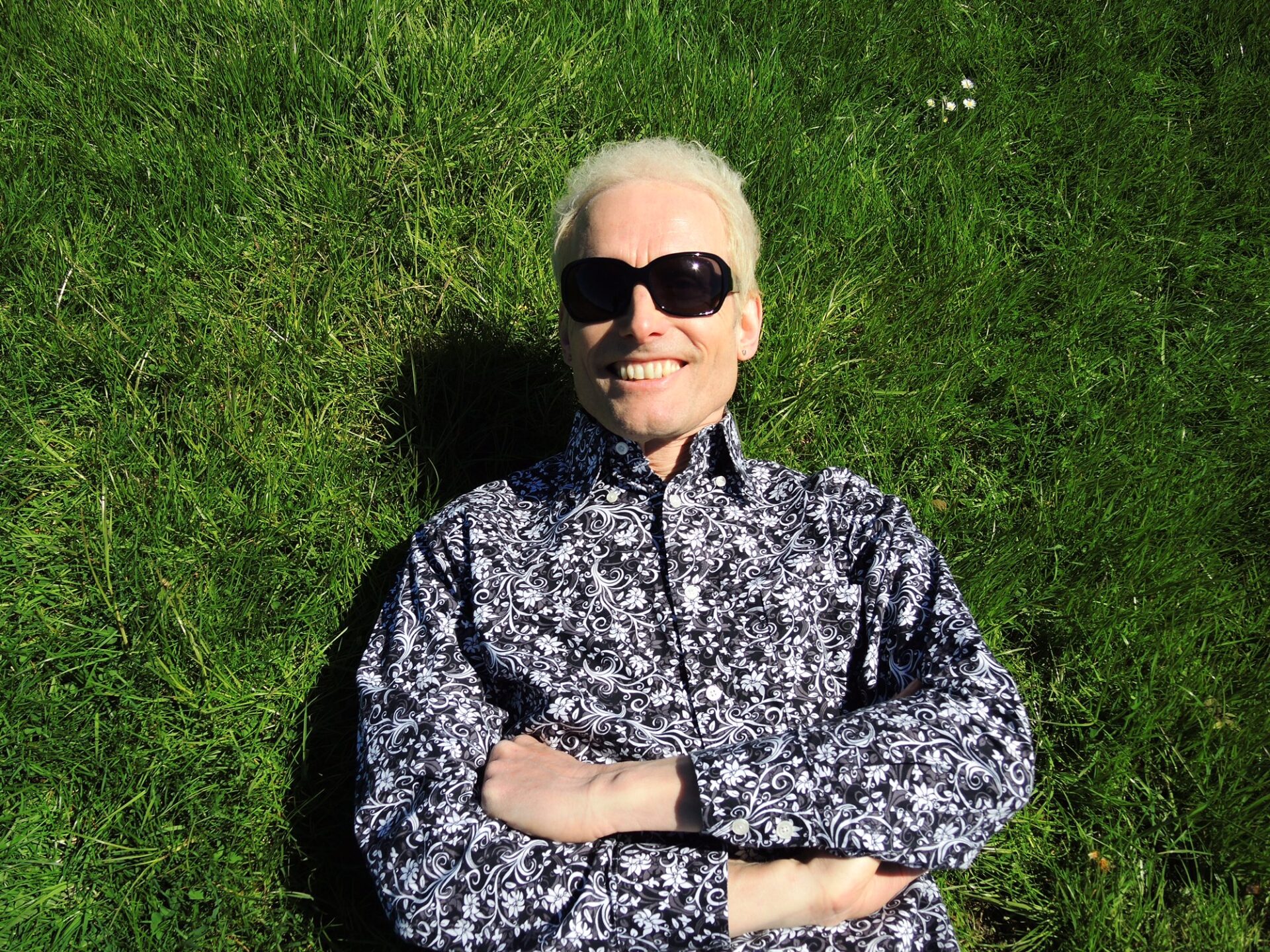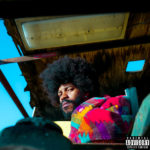Synthpop masters Fiat Lux (aka David Crickmore and Steve Wright) have returned with two albums (or three, check out part one of this article for details!). Here’s the rest of the interview…
God Is In The TV: Are there any artists either from the 80s or from now that you feel that you have an affinity with, kindred spirits?
Steve: Yes! Definitely!
David: Oh! Who are they then?
Steve: I remember The Lotus Eaters‘ ‘The First Picture Of You’ coming out and thinking “That is wonderful…”
David: We were at Amazon Studios in Liverpool when we got an early master of that, weren’t we?
Steve: Yes…and David, was that a demo that Hugh (Jones, producer) was going to have a look at as a possible thing to do?
David: Yes, it might well have been – it was certainly something that was floating around Amazon!
Steve: And the other act that I get from that time, there are a lot of acts that I like, but the one that sticks in my memory for their choice of sounds and for their history, and for why they became such a presence in the first place, is The Blue Nile.

Would you believe that I have written down a couple of artists that I was going to ask you about and one of them is The Blue Nile? Another one, from more recently is Hurts; are you familiar with them?
Steve: No I don’t know them, but good luck to them!
David: It is interesting, because one of the good things about us doing this now is that at this very moment, there are quite a lot of acts that have that kind of similarity in just a soundscape, or have adapted that sound if they have been around for a while to have that in it…Jon Hopkins is an example that springs to mind, even Alt-J, some of the stuff that they have done more recently. There’s a bedrock of that kind of synthesizer in there that chimes with us a little bit…and Sufjan Stevens who I previously had down as a kind of Americana artist has started to do these soundscapes on his latest records as well. There’s something in the water at the moment I think with that kind of thing…maybe if we had tried to bring something out in the late 90s, we wouldn’t have been in sync with anything.
Steve: Correct!
What do you think about the whole streaming versus physical thing?
David: It (streaming) has its advantages in that you probably reach people that you wouldn’t in any other form, but I liken it to the cassette really, in terms of its sound quality and everything, and in terms of engagement in it as a product…people who are real listeners, I think would want to listen to it on something a little less lossy, a little more defined, but it’s a great way of listening to stuff on the move, catching a glimpse of something to see whether you like it more, that kind of thing. So I do think it is the equivalent of the old vinyl single or cassette, whereas a CD of something a bit more tangible, something a bit higher quality is more akin to the old vinyl album really. And as we are constantly told now, the vinyl album is “coming back!” My feeling on the matter is if you are going to listen to something from whatever era, I would like to listen to it on the format that it was intended to be released on at the time.
Steve: I think that streaming gives you global access, as in we’ve had messages from people in Russia and Canada…there’s one guy who’s ordered a CD of Saved Symmetry from Canada, who says he’s ordered it, but he sent a message to say “Knowing the postal system here in the snow, when will I get it?!” But the streaming thing gives you global access which we didn’t have before, before mail order and all that kind of stuff, but I agree with David completely; if you want to listen to something and listen to the quality of it, then the medium on which is was originally recorded.
David: The thing about streaming which is slightly disappointing is it seems to have developed a culture of putting the music on while doing something entirely different as well. There aren’t that many people, although I have come across some people, that I have recorded in the studio, who are a lot younger than we are, who actually are prepared to sit down and do the job of simply listening to a record, but there aren’t many of them about now and I think that the streaming thing is partially responsible for that because you can get it any way you like and be doing something else while it’s going on.
Everybody seems to have headphones on, listening to music but fewer people than ever seem actually interested in music…
David: Yes, that’s kind of my point. It is a paradox.
Is there a song that you wish you had written?
Steve: Yes… and I think it might have been…can you give me a couple of minutes? David, over to you!
David: Oh great thanks, I was looking forward to those couple of minutes while you were thinking of it!
Steve: Do I have a song I wish I had written…yes I have and I remember saying it to friend, “God I wish I’d written that”, carry on!
David: Erm…
Steve: Do you know, I think it might have been that (sings in background)…
David: ‘I Love Your Smile’ by Shanice. Yes, that’s a nice one, there are so many great songs about now…
Steve: I mean there’s loads!
David: ‘A Whiter Shade Of Pale’…
Steve: Oh yeah, well, for the royalties!
David: Not necessarily, I still think it stands up.
Steve: Also The Lotus Eaters’ ‘The First Picture Of You’ is just amazing…it captures that era, it captures that mood and it captures summer, and sitting in a field and all that kind of stuff.
David: It’s really great.
Steve: And New Order, ‘Blue Monday’. David, weren’t we in Strawberry Studios in Stockport, which is where that was recorded?
David: Oh yes, that’s right.
Steve: ‘Blue Monday’ is…well it’s a game changer isn’t it?
David: The thing you’ve got to think about with certainly the early 80s, before the pop industry got a stranglehold back on the system again, after the kind of D.I.Y. and punk and everything, the early 80s produced some stuff which got into the charts which was a little bit left field and the whole ethos was “How can we find a different sound that’s different from something else, and how can we progress it along?”, there was a real progressive kind of vibe about what you created next, which then went away. You can hear it in some of the songs and think “How did that end up getting in the charts?”, it’s kind of a slightly angular thing that’s going on for those few years.
Steve: Andy, have you heard…David close your ears…Rick Astley‘s track called ‘Try’?
No…
Steve: Man…Rick Astley was one of those…
David: …responsible for getting rid of the innovation in music for a bit!
Steve: Recently he’s released an album, and there’s a track called ‘Try’ on there. Have a listen to that. His voice is stupendous, and the production and the arrangement is great. If you haven’t heard it, give it a listen.
David sounds less impressed…
David: No, I give anything a try, don’t worry!
Steve: Really, it’s fantastic…so maybe that would be the track I wish I’d written.
Well great, that would certainly be an unexpected answer to the question!
David: I bet that’s the one that makes it into print then!
Steve: That’s fine by me, because it is gorgeous. Honestly, it’s gorgeous.
Saved Symmetry (the brand new album) is out now on Splid Records.
Hired History Plus (the reissue including the lost album Ark Of Embers) is released on 19th April by Cherry Red Records.




